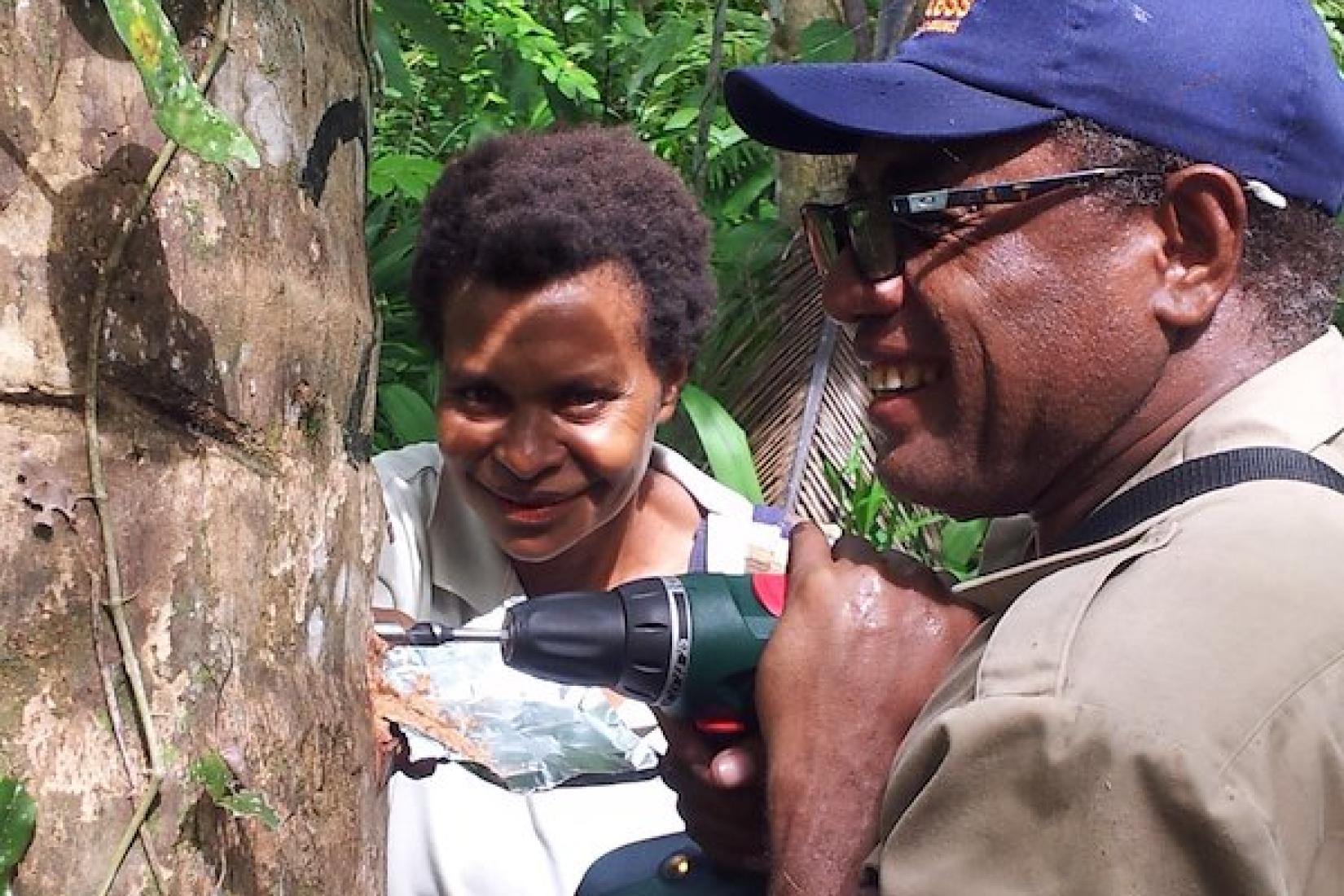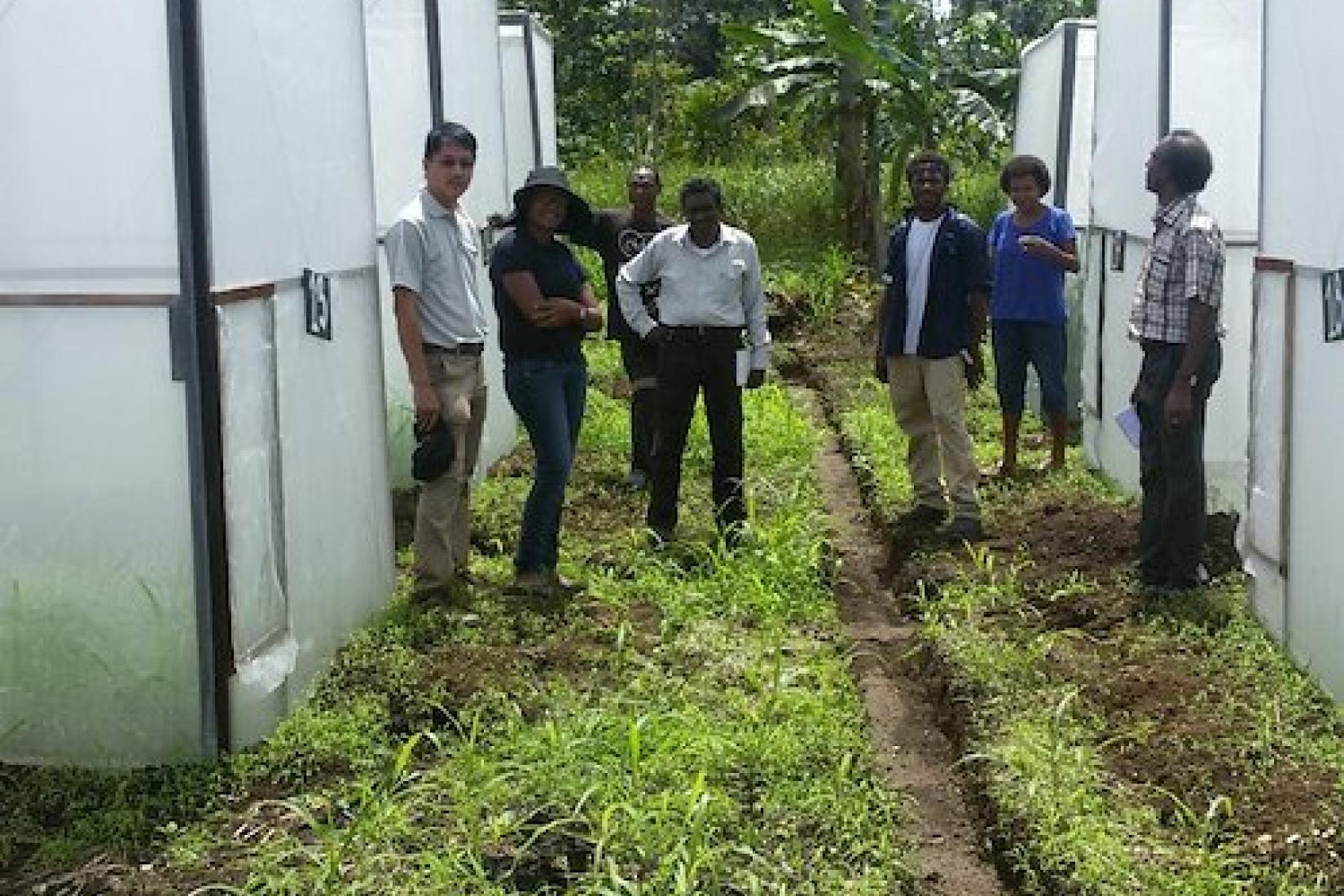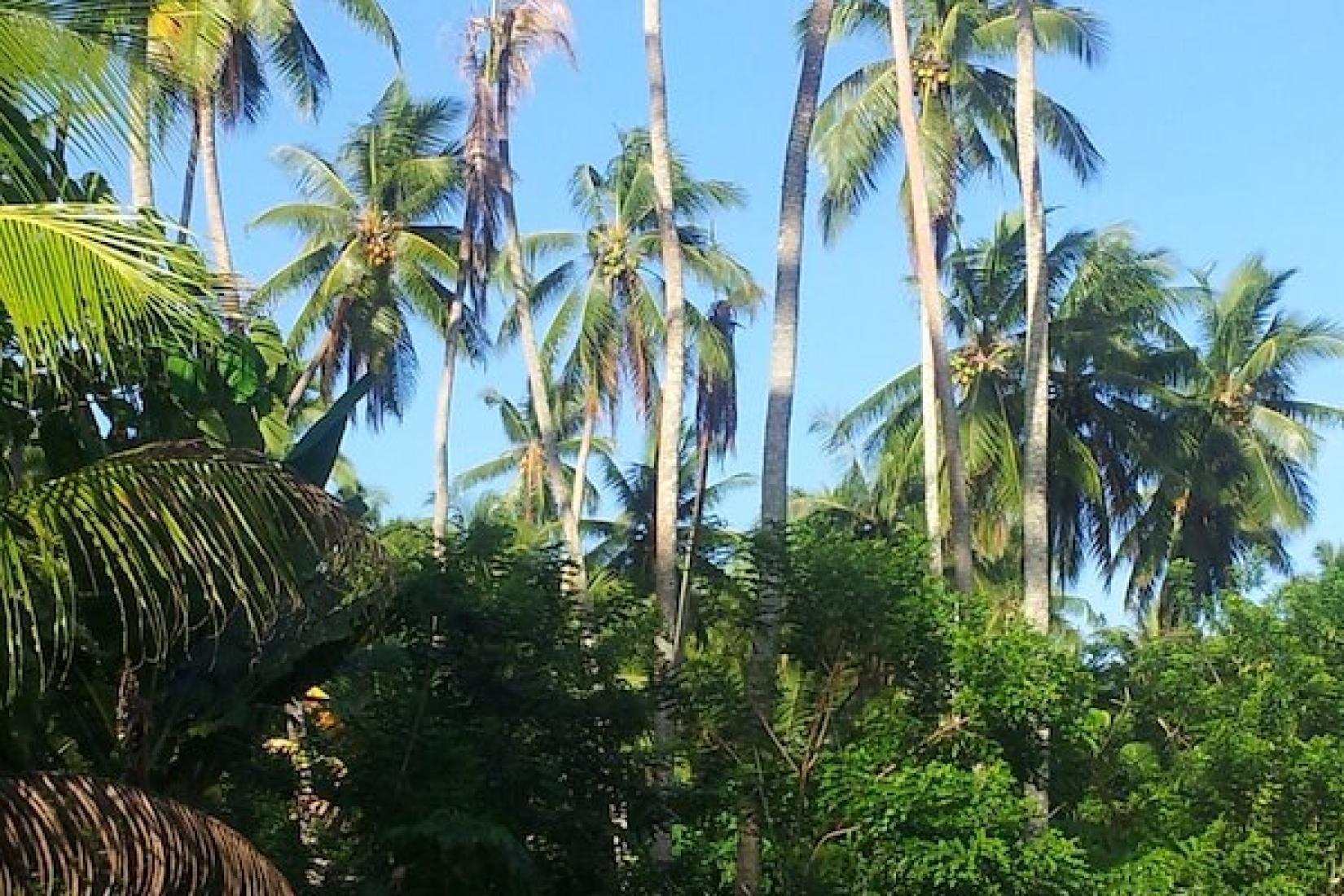As infected planting materials are most likely to be a major source for the spread of the disease, in internal quarantine checkpoint was established on the major highway that leads out of Madang Province to the neighbouring Morobe Province. No-one was allowed to take any planting materials from any crops out of Madang Province. This was done to prevent further spread of BCS, especially to the oil palm plantations on the other side of the mountain range that separates the Madang and Morobe provinces.
The disease development studies conducted by Ramu Agri-Industries Limited, Cocoa Coconut Institute Limited and National Agricultural Quarantine and Inspection Authority showed that it only takes three to six months after the symptoms first appear for the palms to die.
There is currently no cure for BCS in PNG and very limited biological knowledge of the organism and its transmission. Sanitation of diseased palms has been used in Africa, Reunion Island and the West Indies, and this has delayed the spread of the lethal yellowing-type diseases.
This research is part of a project funded by the Australian Centre for International Agricultural Research to gain biological knowledge of BCS and develop a risk management strategy with a view to developing an appropriate and evidence-based response, based on a realistic assessment of the threat to coconut and other crops.






